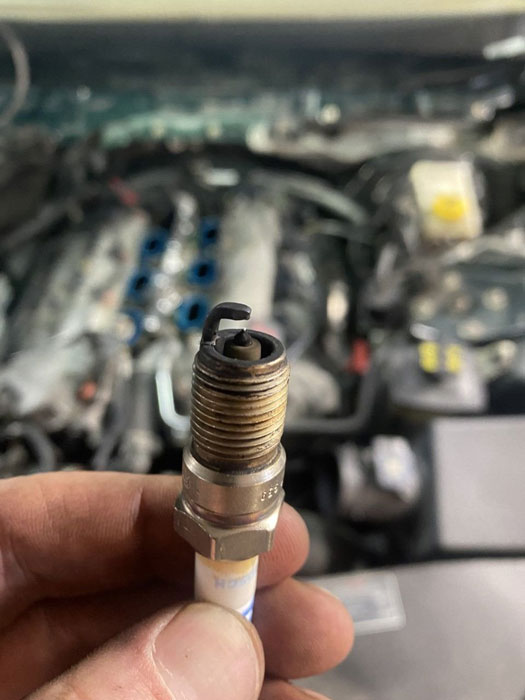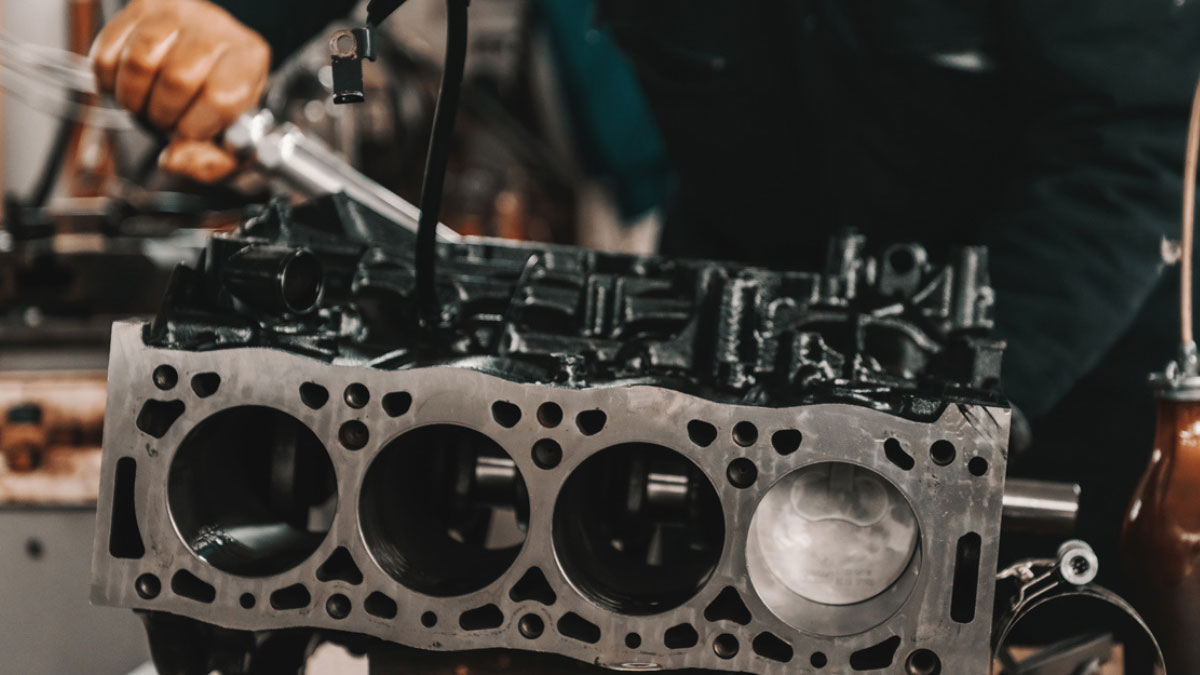Experiencing a dead cylinder in your vehicle can be a frustrating and concerning issue for any driver. When one of the cylinders in your engine fails to fire properly, it can lead to a range of symptoms that may affect your car’s performance. From rough idling and decreased power to strange engine sounds, recognizing these signs early on is crucial to addressing the problem promptly. As an experienced mechanic, I’ve encountered various instances of dead cylinders and understand the importance of diagnosing and resolving them efficiently. In this article, I’ll delve into the common indicators of a dead cylinder, helping you identify and tackle this issue before it escalates.
Understanding the Symptoms of a Dead Cylinder

Common Signs to Look Out For
Having dealt with various dead cylinder cases, I’ve identified some common signs that should raise concern. One prominent indicator is a noticeable drop in engine performance. This can manifest as rough idling, where the engine struggles to maintain a steady speed when the vehicle is stationary. Another evident symptom is a loss of power during acceleration. When a cylinder fails to fire correctly, it directly impacts the engine’s ability to generate the necessary power, leading to sluggish acceleration. Additionally, keep an ear out for unusual engine sounds. A dead cylinder can produce distinct noises such as sputtering, popping, or even backfiring, signaling a potential issue that needs attention.
How It Affects Vehicle Performance
Understanding how a dead cylinder affects your vehicle’s performance is crucial for timely intervention. A dead cylinder compromises the engine’s overall power output, resulting in reduced acceleration and performance. This can lead to a significant decrease in fuel efficiency, as the engine compensates for the underperforming cylinder by working harder. Moreover, the imbalance caused by a dead cylinder can put additional strain on other components, potentially leading to more extensive and costly repairs if left unaddressed. Recognizing these performance effects early on can help prevent further damage and ensure optimal engine function.
Diagnosing a Dead Cylinder
When diagnosing a dead cylinder, I rely on specific tools and techniques to pinpoint the issue accurately.
Tools and Techniques
I use a compression tester to check the compression levels in each cylinder. By comparing the readings, I can identify a potential dead cylinder by noting any significant variations in compression levels among cylinders. Additionally, a spark tester helps me determine if the spark plug is firing correctly in the suspected dead cylinder. This tool enables me to diagnose ignition-related problems accurately.
When to Seek Professional Help
If despite my best efforts, I am unable to identify the root cause of the dead cylinder or if the issue seems complex, I recommend seeking professional help. A qualified mechanic has the expertise and diagnostic tools to troubleshoot and repair dead cylinder issues effectively. It’s essential not to ignore persistent symptoms or performance issues, as delaying repairs can lead to further damage and costly repairs down the line.
Repairing a Dead Cylinder
When it comes to fixing a dead cylinder in a vehicle, there are both DIY solutions and professional repair options available. Here’s a breakdown of the potential fixes and their associated risks.
DIY Fixes and Their Risks
If you’re considering tackling the issue yourself, there are a few DIY fixes you can attempt to repair a dead cylinder. These may include:
- Replacing Spark Plugs: One common DIY fix is replacing the spark plugs in the affected cylinder. This can help improve combustion and engine performance.
- Swapping Ignition Coils: Another DIY option is swapping the ignition coils between cylinders to see if the issue moves with the coil, indicating a faulty component.
While these solutions can sometimes resolve the problem, there are risks involved in DIY repairs:
- Incorrect Diagnosis: Without proper tools and expertise, you may misdiagnose the issue, leading to ineffective repairs.
- No Warranty: DIY fixes typically don’t come with a warranty, so if the problem persists or worsens, you may end up spending more on professional repairs.
Professional Repair Solutions
For more complex issues or if you’re uncertain about the diagnosis, it’s best to opt for professional repair solutions. A trained mechanic can provide the following services:
- Compression Test: A mechanic can perform a compression test to check the health of the cylinders and identify any issues with compression levels.
- Leak-Down Test: This test helps pinpoint specific areas of leakage within the cylinder and provides insight into potential causes of engine problems.
By choosing professional repair solutions, you benefit from:
- Expertise: Trained mechanics have the knowledge and experience to accurately diagnose and fix dead cylinder issues.
- Warranty: Professional repairs often come with a warranty, giving you peace of mind that the problem will be resolved effectively.
Knowing when to opt for DIY fixes or professional repair solutions is essential in ensuring the proper maintenance and performance of your vehicle’s engine.
Preventative Measures and Maintenance Tips
When it comes to maintaining a healthy engine and preventing issues like a dead cylinder, regular checks and balances are key. As an avid car owner, I prioritize keeping my vehicle in top condition by following these essential tips:
Regular Checks and Balances
I make it a habit to perform routine inspections on my vehicle to catch any potential problems early on. By checking the spark plugs, ignition coils, and fuel injectors regularly, I can detect issues before they escalate into major problems. Additionally, monitoring the engine’s performance and listening for any unusual sounds helps me stay proactive in maintaining my vehicle’s health.
Long-Term Cylinder Care
To ensure the long-term health of my engine’s cylinders, I focus on proper maintenance practices. This includes changing the engine oil at regular intervals, using high-quality fuel, and avoiding overheating the engine. By following these maintenance tips, I can prolong the lifespan of my engine and reduce the risk of encountering issues like a dead cylinder in the future.
Conclusion
Recognizing the symptoms of a dead cylinder in your vehicle is crucial for maintaining optimal engine performance. From rough idling to decreased power, these signs can indicate underlying issues that require attention. Diagnosing a dead cylinder using the right tools is key to addressing the problem effectively. Regular maintenance, such as checking spark plugs and fuel injectors, can help prevent such issues in the future. Knowing when to seek professional help versus attempting a DIY fix is essential for keeping your engine running smoothly. Stay proactive in caring for your vehicle to avoid encountering dead cylinder issues down the road.
Frequently Asked Questions
What are the signs of a dead cylinder in a vehicle?
Common signs of a dead cylinder include rough idling, decreased power, engine performance drop, and unusual sounds.
How can I diagnose a dead cylinder in my vehicle?
You can diagnose a dead cylinder using tools like a compression tester and spark tester to identify the issue accurately.
Is it necessary to seek professional help for a dead cylinder in a vehicle?
If you are unsure about diagnosing or fixing a dead cylinder, it is recommended to seek professional help to prevent further damage to the engine.
What preventive measures can help maintain a healthy engine?
Regular checks on spark plugs, ignition coils, and fuel injectors, along with timely maintenance practices like changing engine oil and using high-quality fuel can help avoid issues like a dead cylinder.
When should I opt for DIY fixes versus professional repairs for a dead cylinder issue?
Understanding when to opt for DIY fixes and when to seek professional repairs is essential for ensuring optimal engine function and effective resolution of dead cylinder issues in vehicles.

